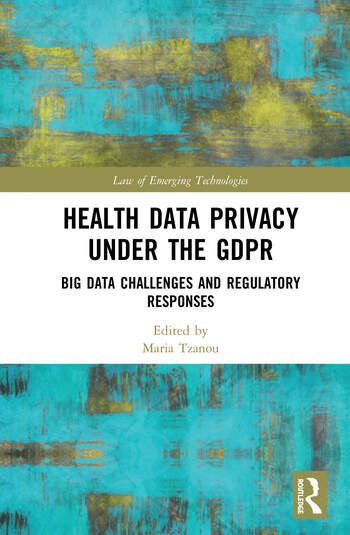
The growth of data collecting goods and services, such as ehealth and mhealth apps, smart watches, mobile fitness and dieting apps, electronic skin and ingestible tech, combined with recent technological developments such as increased capacity of data storage, artificial intelligence and smart algorithms have spawned a big data revolution that has reshaped how we understand and approach health data. Recently the COVID-19 pandemic has foregrounded a variety of data privacy issues. The collection, storage, sharing and analysis of health- related data raises major legal and ethical questions relating to privacy, data protection, profiling, discrimination, surveillance, personal autonomy and dignity.
This book examines health privacy questions in light of the GDPR and the EU’s general data privacy legal framework. The GDPR is a complex and evolving body of law that aims to deal with several technological and societal health data privacy problems, while safeguarding public health interests and addressing its internal gaps and uncertainties. The book answers a diverse range of questions including: What role can the GDPR play in regulating health surveillance and big (health) data analytics? Can it catch up with the Internet age developments? Are the solutions to the challenges posed by big health data to be found in the law? Does the GDPR provide adequate tools and mechanisms to ensure public health objectives and the effective protection of privacy? How does the GDPR deal with data that concern children’s health and academic research?
By analysing a number of diverse questions concerning big health data under the GDPR from various different perspectives, this book will appeal to those interested in privacy, data protection, big data, health sciences, information technology, the GDPR, EU and human rights law.